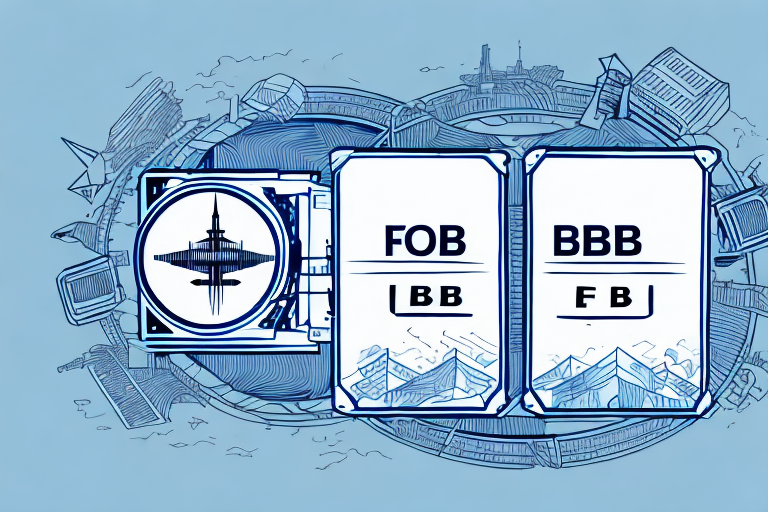How to Create a Commercial Invoice for Your Supply Chain
In the realm of international trade, understanding how to create a commercial invoice is paramount. A commercial invoice is a legal document that serves as evidence of the goods shipped and their corresponding value. This article delves into the fundamentals of commercial invoices, their critical role in your supply chain, and offers actionable tips for crafting effective and accurate invoices.
Understanding the Basics of a Commercial Invoice
A commercial invoice is a detailed document that outlines the specifics of a shipment from the seller to the buyer. It includes crucial information such as:
- Seller and Buyer Information: Names, addresses, and contact details.
- Purchase Order Number: A reference number for the transaction.
- Description of Goods: Detailed information about the products being shipped.
- Quantity and Unit Price: Number of items and their respective prices.
- Total Value: Overall value of the shipment.
- Payment Terms: Agreed terms for payment.
- Delivery Terms: Conditions under which the goods are delivered.
Commercial invoices are essential for both parties involved as they provide a legal record of the transaction, assist customs officials in assessing duties and taxes, and aid in inventory and financial tracking.
Why a Commercial Invoice is Essential for Your Supply Chain
Implementing a well-structured commercial invoice is vital for several reasons:
- Legal Proof: Serves as evidence in case of disputes.
- Customs Clearance: Facilitates the assessment of duties and taxes by customs authorities.
- Inventory Management: Helps buyers track their inventory.
- Financial Tracking: Assists sellers in monitoring sales and revenue.
According to the World Bank, accurate documentation can reduce trade barriers and enhance the efficiency of cross-border transactions.
The Key Components of a Commercial Invoice
Ensuring all necessary components are included in your commercial invoice is crucial for accuracy and compliance. The key components are:
- Invoice Date: The date when the invoice is issued.
- Seller Information: Detailed contact information of the seller.
- Buyer Information: Detailed contact information of the buyer.
- Purchase Order Number: Unique reference number for the order.
- Description of Goods: Comprehensive details about the products.
- Quantity and Unit Price: Number of units and individual prices.
- Total Invoice Value: Aggregated value of all goods.
- Payment Terms: Conditions agreed upon for payment.
- Delivery Terms: Terms and conditions related to the delivery of goods.
How to Ensure Accuracy and Compliance in Your Commercial Invoice
Accuracy and compliance in your commercial invoices are non-negotiable. Here are actionable tips to achieve this:
- Provide Detailed and Accurate Information: Double-check all entries for correctness and completeness.
- Include the Correct Harmonized System (HS) Code: Utilize the HS Code for accurate classification of goods.
- Comply with Import and Export Regulations: Stay updated with the latest regulations of the involved countries. Refer to official sources like U.S. Customs and Border Protection.
Tips for Creating an Effective Commercial Invoice
An effective commercial invoice streamlines transactions and reduces potential errors. Consider the following tips:
- Use a Consistent Format: Maintain uniformity across all invoices for easier readability.
- Include Relevant Details: Ensure all necessary information is present, including buyer and seller details, PO number, goods description, quantities, prices, total value, payment, and delivery terms.
- Use a Reliable Invoicing System: Implement a system that allows for easy creation, management, and tracking of invoices. Tools like ShipScience can be beneficial.
Different Types of Commercial Invoices and When to Use Them
Choosing the right type of commercial invoice depends on the nature of your shipment and the countries involved. Common types include:
- Proforma Invoice: Provides an estimate of costs to assist with customs clearance and payment arrangements.
- Consular Invoice: Required in certain countries to certify the shipment's origin and confirm exporter details.
- Shipping Invoice: Offers detailed information about the shipment, including weight, dimensions, and transport method.
Best Practices for Managing Your Commercial Invoices
Effective management of commercial invoices enhances supply chain efficiency. Adopt the following best practices:
- Invest in an Automated Invoicing System: Automation facilitates easy creation, management, and tracking of invoices.
- Ensure Timely Payments: Prompt payments prevent cash flow disruptions.
- Implement a Follow-Up System: Regularly follow up on outstanding payments or disputes to maintain smooth operations.
How to Automate Your Commercial Invoice Process
Automation significantly improves the efficiency of your invoicing process. Here are ways to integrate automation:
- Use an Online Invoicing Platform: Platforms like ShipScience offer tools to create and manage invoices seamlessly.
- Integrate with Your Accounting Software: Sync your invoicing system with accounting tools for streamlined financial management.
- Utilize Electronic Data Interchange (EDI): EDI enables the electronic exchange of invoices, reducing the need for paper and minimizing manual data entry.
Common Mistakes to Avoid When Creating a Commercial Invoice
To ensure your commercial invoices are effective, avoid the following common mistakes:
- Missing or Incorrect Information: Always verify that all fields are accurately filled.
- Incorrect Unit Prices or Quantities: Double-check numbers to prevent discrepancies that could delay shipments.
- Non-Compliance with Regulations: Stay informed about international trade regulations to avoid penalties and delays.
The Role of Technology in Streamlining Your Supply Chain through Commercial Invoices
Technology plays a pivotal role in enhancing the efficiency of your supply chain. Here's how:
- Automate Your Invoicing Process: Automation tools can handle invoice creation, management, and tracking effortlessly.
- Improve Accuracy: Electronic invoices reduce the likelihood of human errors, ensuring faster clearance.
- Real-Time Tracking: Advanced tracking technologies provide up-to-date information on shipment status and location.
How to Handle Disputes and Delays with Your Commercial Invoices
Disputes and delays can hinder your supply chain, but proactive measures can mitigate their impact:
- Communicate Regularly with Your Buyers: Maintain open lines of communication to address issues promptly.
- Establish a Dispute Resolution Process: Have a clear process in place to handle and resolve disputes efficiently.
- Ensure Accurate and Complete Documentation: Provide thorough documentation to customs authorities to prevent unnecessary delays.
International Trade and the Importance of Accurate Commercial Invoices
In the complex landscape of international trade, accurate commercial invoices are indispensable. They ensure compliance with regulations, reduce the risk of disputes, and enhance the overall efficiency of your supply chain. Key benefits include:
- Regulatory Compliance: Accurate invoices help in adhering to import and export regulations.
- Reduced Risk of Disputes: Clear and precise invoices minimize misunderstandings and conflicts.
- Enhanced Efficiency: Streamlined invoicing processes lead to cost savings and improved cash flow.
How to Create a Customized Commercial Invoice for Your Business Needs
Tailoring your commercial invoice to fit your specific business requirements ensures smoother operations. Follow these steps to create a customized invoice:
- Identify Your Business Needs: Determine the specific information and format that best suits your operations.
- Collaborate with Your Buyers: Understand your buyers' requirements to ensure the invoice meets their expectations.
- Utilize a Customizable Invoicing System: Choose a system that allows for customization to align with your unique business processes.
Conclusion
Creating a commercial invoice is a fundamental aspect of international trade. Ensuring that your invoices are accurate, compliant, and comprehensive is essential for a smooth and efficient supply chain. By implementing the strategies and best practices outlined in this article, you can enhance your invoicing process, reduce risks, and contribute to the overall success of your international transactions.




















